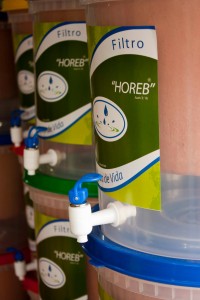Self Sustainable Projects
For almost two centuries, national churches and ministries in Latin America and other areas around the world have been suffering from the “Dependence Syndrome”, a generally un intended condition caused by foreign missionaries who brought the Gospel of Jesus Christ to the affected countries. Along with the Gospel came foreign monetary aid to help correct various problems as they became apparent. Over the years, nationals became accustomed to the foreign money paying for church-related facilities and functions, and it became very easy for the nationals to only give token offerings to the church. Hence, the joy and benefits of giving were never learned. The blessings that God gives a cheerful giver have never been experienced by the majority of nationals. They were conditioned to be satisfied waiting on external help and not using their own resources. At InterSALUD, we want to eradicate this idea for the national Christian churches, ministries and individuals, so they are no longer only dependent on external resources. Rather, we teach and demonstrate that we must generate funding and support from local and inner resources to provide funds for our needs. InterSALUD is creating a revolutionary system, where people, churches and ministries can meet their needs by creating self-sustainable methods to be financially independent. These methods include starting income-producing projects while giving the training, ideas, and logistics to develop such businesses. This is not just an idea. We are presently doing it. We have currently helped many projects around the country (Ecuador), who are now well self-supported by their recently established businesses. They are profitably selling their products and/or services that they offer, and they are becoming financially independent. Our latest project consists in a fish farm in El Puyo, Ecuador, a city in eastern Ecuador, across the Andes from the coast. This is owned and operated by a pastor and his wife. Their fish are less expensive because there is no freight cost to get it from the coast. Consequently, the demand for their fish is high, and the profit is adequate for their support. One can imagine the good emotional health that is enjoyed by the family. They have employment, financial support and people to help in their ministry. Such projects really close the perfect circle of an integral health program.
Our latest project consists in a fish farm in the Puyo, Ecuador, a city in eastern Ecuadoracross the Andes from the coast. This is owned and operated by a pastor and his wife. Their fish are less expensive because there is no freight costs from the coast.Consequently, the demand for their fish is good, and the profit is adequate for their support. One can imagine the good emotional health that is enjoyed by the family. They have employment, financial support and people to help in their ministry. Such projects really close the perfect circle of an integral health program.

